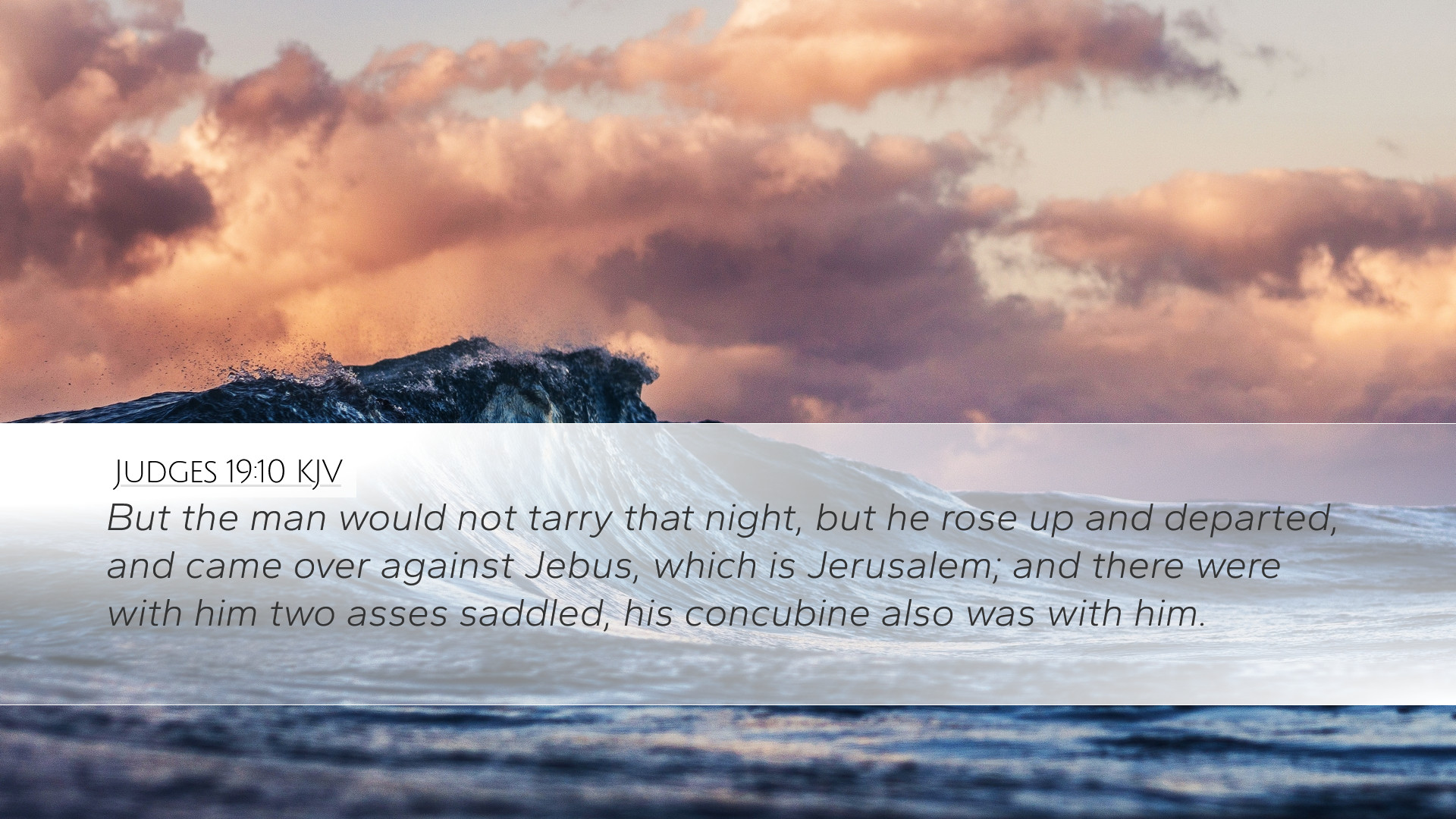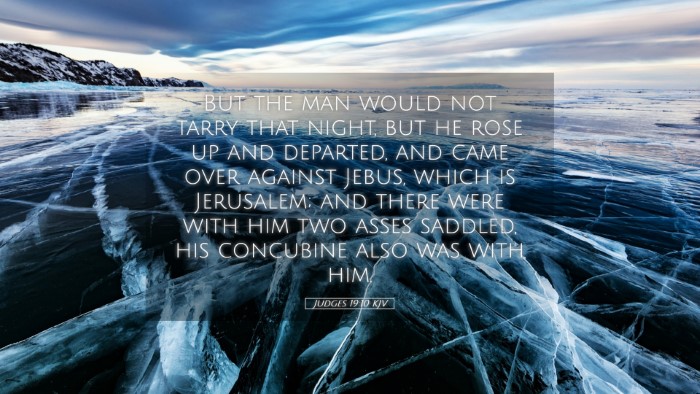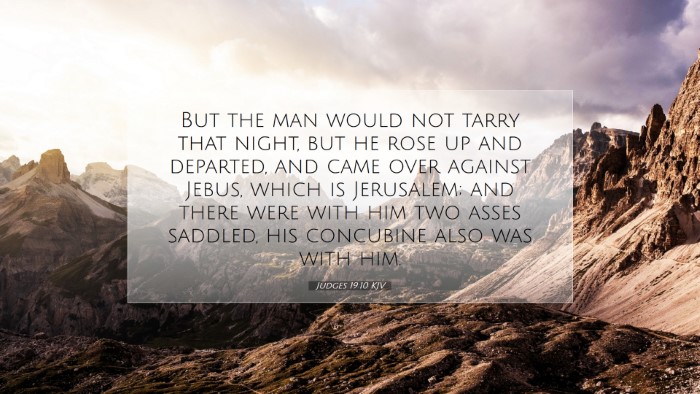Commentary on Judges 19:10
Introduction
Judges 19:10 is a pivotal verse that sets the stage for a harrowing narrative in the history of Israel, during a time of social and moral decline. This commentary aims to explore the insights provided by esteemed public domain commentators such as Matthew Henry, Albert Barnes, and Adam Clarke, offering a comprehensive analysis for pastors, students, theologians, and scholars.
Text of Judges 19:10
"But the man would not turn aside thither: but he turned in to Gibeah to lodge." (Judges 19:10, KJV)
Contextual Overview
The Book of Judges highlights a period in Israel's history characterized by cyclical patterns of disobedience, oppression, and deliverance. The passage recounts the journey of a Levite and his concubine, reflecting on the social and cultural dynamics of Israelite society during a time when “everyone did what was right in their own eyes” (Judges 21:25).
Insights from Commentators
Matthew Henry's Commentary
Matthew Henry emphasizes the circumstances surrounding the Levite's journey. He notes that the man’s refusal to stay in the city of Jebus, a place inhabited by foreigners, points to the deep-seated prejudices and hesitations that marked Israelite identity during this era. Henry articulates that:
- “The Levite had a choice to make—whether to trust in the hospitality of Jebus or to seek out a more familiar and perhaps safer option in Gibeah.”
- He also emphasizes the Levite's choices as reflective of a broader tendency among the Israelites to isolate themselves from foreign influences, despite their own rampant corruption.
Albert Barnes' Commentary
Albert Barnes brings attention to the social implications of this verse, particularly as it relates to the treatment of travelers and strangers in ancient Israel. He states:
- “The Levite’s choice to journey toward Gibeah reflects the societal norms regarding hospitality, which were integral to the fabric of Israelite life.”
- He highlights that Gibeah, though a city of Israel, was emblematic of moral decay, which ultimately raises critical reflections on the ethics of hospitality and safety for the vulnerable.
Adam Clarke's Commentary
Adam Clarke enriches the understanding of the Levite's decision-making process by diving into the implications of geographic and cultural context:
- “The Levite’s reluctance to enter Jebus signifies the broader challenges of cultural integration and the underlying fears that plague communities.”
- Clarke remarks on the name 'Gibeah,' which means 'hill,' possibly symbolizing a place elevated in status but low in morality, and raises questions about the dangers of misplaced trust in one's own kin over external parties.
Theological Reflections
The tension represented in this verse prompts several theological reflections:
- The Nature of Choice: The Levite’s decision invites contemplation on the nature of choices made in faith versus fear, paralleling modern believers’ decisions in navigating a morally ambiguous world.
- The Issue of Hospitality: The commentary elucidates a biblical mandate for hospitality, prompting a reflection on the treatment of outsiders and the moral responsibilities of those within the faith community.
- The Consequences of Isolation: The move away from Jebus signifies a retreat into a homogenous identity, a warning about the dangers of isolating oneself from diverse perspectives and influences.
Practical Applications
This verse, along with the commentaries, provides meaningful lessons for pastoral application:
- Encouragement for Inclusive Hospitality: Pastors are encouraged to foster environments that welcome outsiders, reflecting Christ’s teaching about loving one’s neighbor.
- Reflection on Moral Choices: Churches can facilitate discussions on the importance of making decisions based on faith and virtue rather than fear or prejudice.
- Critical Examination of Cultural Identity: The narrative urges communities to examine how their cultural identities shape their faith and their interactions with others.
Conclusion
Judges 19:10 serves as a poignant reminder of the complexities of human relationships and the cultural milieu of ancient Israel. The insights from Matthew Henry, Albert Barnes, and Adam Clarke illuminate the spiritual and ethical dimensions of the verse, offering rich material for reflection and application in contemporary ministry. As the church navigates its own societal challenges, the lessons in this text remain relevant, urging a return to foundational biblical values of hospitality, integrity, and community.


